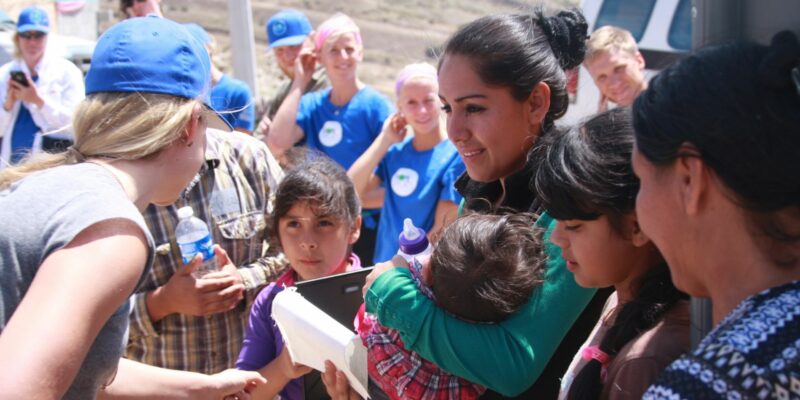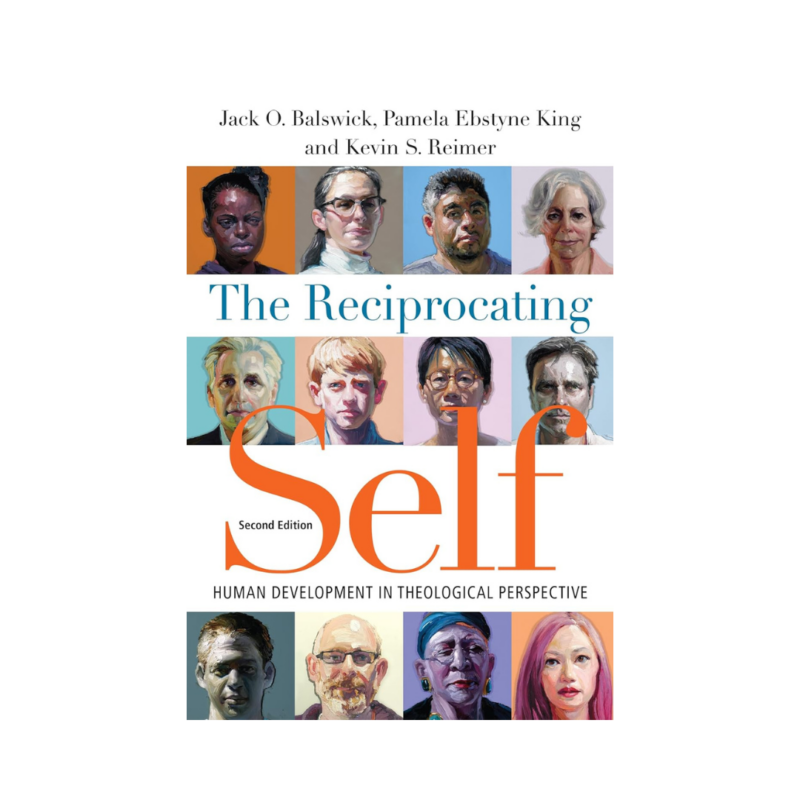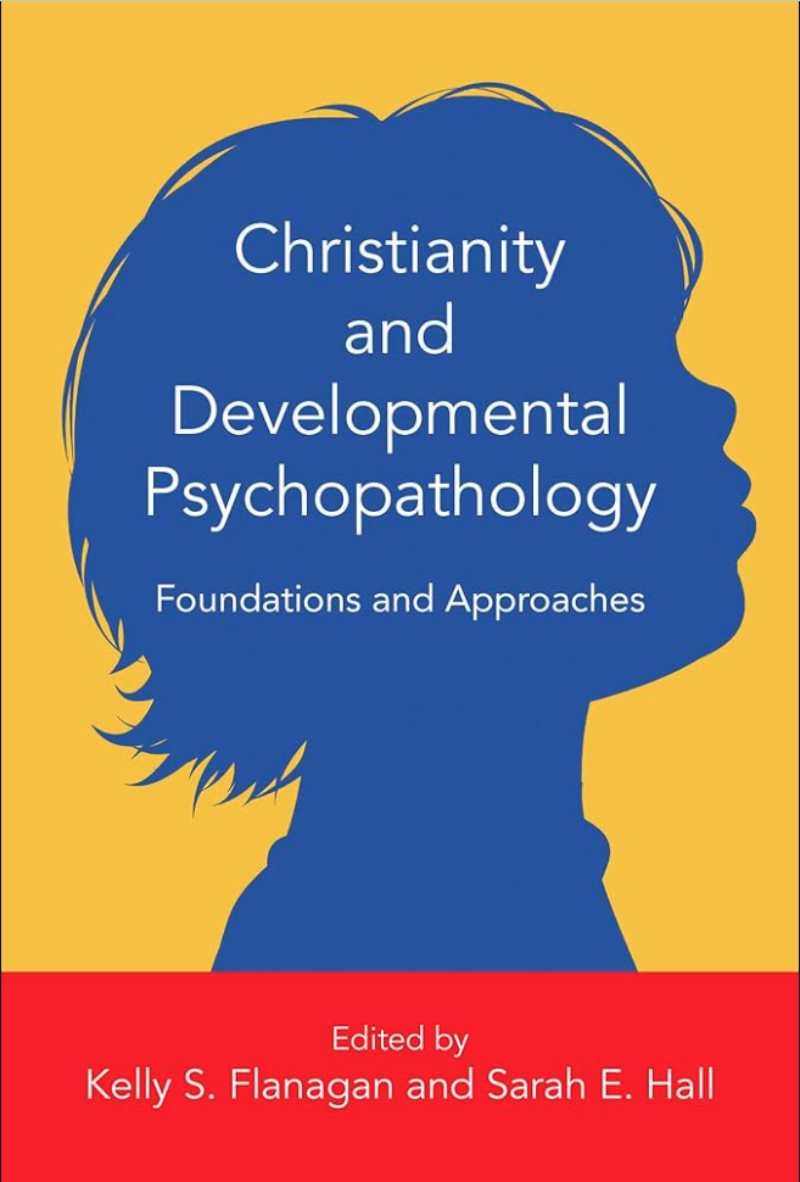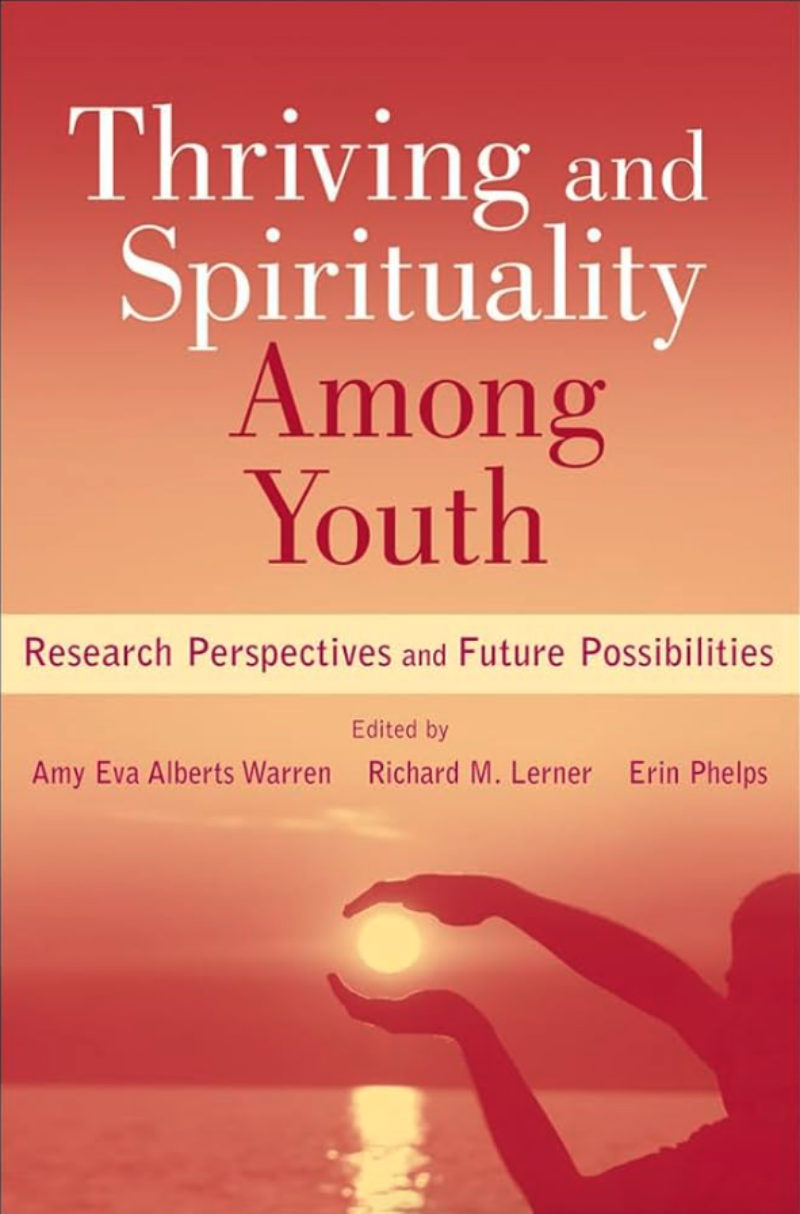Topic Archive
Thriving
Thriving

Video
Pamela Ebsytne King on Relationships
Pamela Ebsytne King, Peter L. Benson Associate Professor of Applied Developmental Science, uses research from developmental psychology to show how relationships strengthen the process of identity formation. Read, listen, and watch more from voices in the Fuller community on the topic of spiritual formation: Voices on Spiritual Formation For more resources for a deeply formed spiritual life, visit https://fullerstudio.fuller.edu.
Christian

Research Link
The reciprocating self: Trinitarian and Christological anthropologies of being and becoming
Citation King, P. E. (2016). The reciprocating self: Trinitarian and Christological anthropologies of being and becoming. Journal of Psychology and Christianity, 35(3), 215-232. Abstract This paper summarizes a Christological and trinitarian anthropology in order to propose a developmental teleology that offers a vision for being and becoming human. From a Christological perspective, Jesus Christ is the perfect image of God, and becoming like Christ as distinct persons is God’s intention for all of humanity. How humans are conformed to Christ occurs through and results in mutual, reciprocal relations with God, humans, and creation. Drawing on Christology and the doctrine of...
Practices

Post
What My Parents Did Right (When It Came to Sports)
A student researcher shares the integral role his parents played in fostering positive youth development through sports.
Thriving

Post
United by a Common Purpose
A Thrive Fellow reflects on her experience of building a home for a family in Mexico, and the power serving others can have on purpose.
Thriving

Research Link
The Reciprocating Self: Human Development in Theological Perspective
Citation Balswick, J. O., King, P. E., & Reimer, K. S. (2016). The reciprocating self: Human development in theological perspective. InterVarsity Press. Abstract On the basis of a theologically grounded understanding of the nature of persons and the self, Jack O. Balswick, Pamela Ebstyne King and Kevin S. Reimer present a model of human development that ranges across all of life’s stages: infancy, childhood, adolescence, young adulthood, middle adulthood and elder adulthood. They do this by drawing on a biblical model of relationality, where the created goal or purpose of human development is to become a reciprocating self―fully and securely related...
Thriving

Video
Finding Purpose in Sports
Summary Founding member of Hope Sports, Benjamin Houltberg offers psychological insights on what it means for young athletes to have a purpose-based identity, and how to help them move from a performance-based identity to purpose in sports. Author’s Note This presentation was originally published by Hope Sports. About the Author Benjamin Houltberg Benjamin Houltberg was the former associate professor of human development at the Thrive Center. As a developmental scientist, his research centers on relational factors that impact emotional health within high-stress environments. Much of his work is on the role of identity development and character virtues in sport as...
Christian

Research Link
What’s the “Positive” in Positive Psychology? Teleological Considerations Based on Creation and Imago Doctrines
Citation King, P.E. & Whitney, W. (2015). “What’s the ‘positive’ in positive psychology: Teleological considerations based on creation and imago doctrines,” Journal of Psychology and Theology 43(1), 47-59. Abstract While positive psychology has considered a social science perspective of optimal development and living, a pressing question for the integration of psychology and theology is to consider what Christian theology suggests is essential for humans to thrive. Recognizing that God’s purposeful action in creation has a telos, that is, a goal or purpose for humankind, propels Christian psychologists to investigate a theology of thriving in order to more fully grasp what...
Thriving

Research Project
Self-Narratives and Emotional Health among Elite Athletes
Ben Houltberg and scholars examine the role of self-narrative profiles in elite athletes' wellbeing.
Spirituality

Research Link
Purpose and Spirituality: Exploring the Role of Fidelity in Diverse Adolescents
Citation Carr, D. R. & King, P. E., Meier, A. M. (2014). Purpose and spirituality: Exploring the role of fidelity in diverse adolescents. Journal of Youth Development, 9(2), 5-15. Abstract Purpose is understood to reflect young people’s stable and generalized commitments to accomplish meaningful activity and contribute productively to society. Religion has been linked with purpose; however, the nature of this relationship is not well understood. Given that purpose and religion involve beliefs and devotion, the current study examined fidelity as a means of understanding this relationship in a group of religiously and culturally diverse youth from around the world....
Thriving

Research Link
Prevention and the promotion of thriving in children and adolescents
Citation King, P. E., & Clardy, C. E. (2014). Prevention and the promotion of thriving in children and adolescents. In K. S. Flanagan & S. E. Hall (Eds.), Christianity and developmental psychopathology: Theory and application for working with youth (p. 179-202). Naperville, IL; InterVarsity Press. Abstract Since its origin in the early 1980s, the field of developmental psychopathology has become a highly influential framework for approaching the clinical treatment of children. Until now there has been no effort to integrate this framework with a Christian understanding of psychopathology. The essays in this volume break new ground by providing Christian mental...
Thriving

Research Project
Evolutionary Psychology and Christian Views on Human Thriving
Thrive faculty and students engage scholars on evolutionary psychology, spirituality, and thriving.
Spirituality

Research Link
Afterword: Where do we go from here?
Citation King, P. E. (2011). Afterword: Where do we go from here? In A. Warren, R. M. Lerner, and E. Phelps (Eds.), Thriving and spirituality among youth: Research perspectives and future possibilities. Hoboken, NJ: John Wiley & Sons. Copyright Year: 2011 Holder: Wiley & Sons, Inc DOI: https://doi.org/10.1002/9781118092699.after…